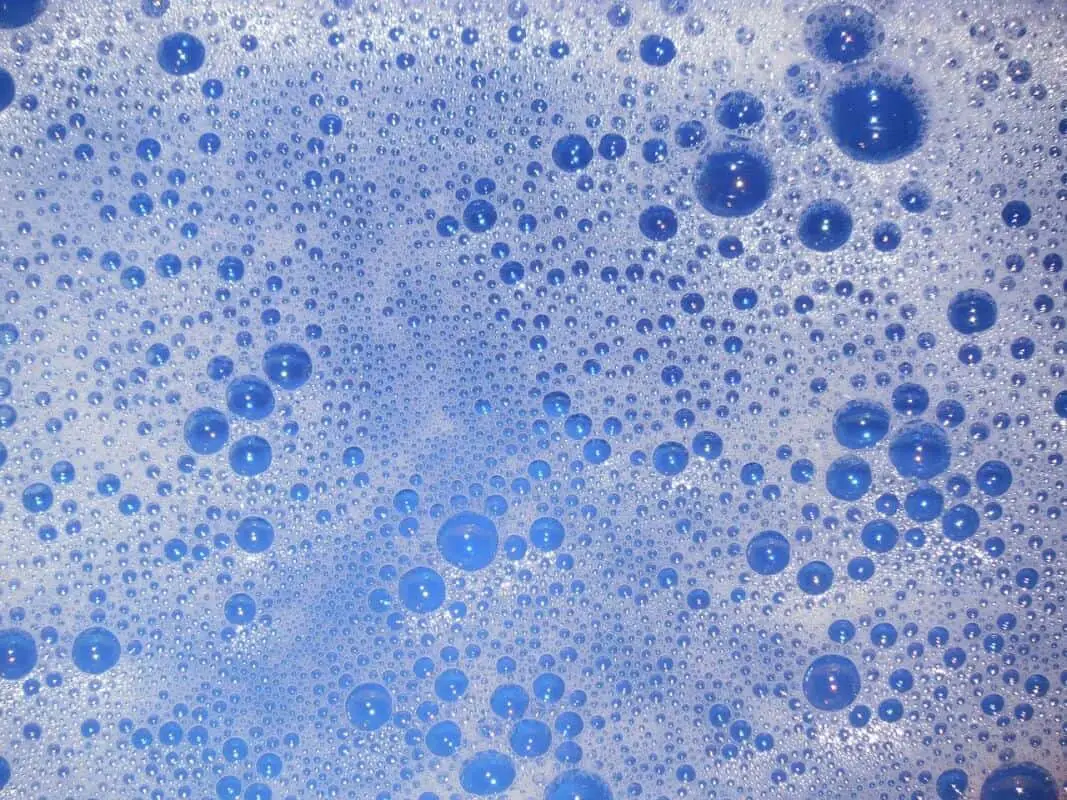Whether you have a backyard oasis or indoor plants are more your thing, gardening can be a rewarding and fulfilling hobby, but not everyone is born with a green thumb. In the world of gardening, so-called fail-proof tips for lush plant growth are everywhere, and often, it is difficult to tell fact from fiction. One topic of hot debate relates to the effects of soapy water on plants.
Is Soapy Water Bad for Plants? There are instances when heavily-diluted soapy water can be applied to plants as an insecticide for certain soft-bodied pests. In other situations, using soapy water for watering may be done out of necessity but not for prolonged periods and only with certain types of mild, liquid soaps.
Whatever the situation and the application, as far as your plants’ well-being is concerned, it is important to know the risks and the potential harm that can be caused by exposing your plants to soapy water. Whether it irrigates the soil or is sprayed on leaves, soapy water can benefit plants, but it can also be their demise if not used properly.
Watering Plants with Soapy Water
If the option exists, watering plants with fresh, clean water is always the preferred choice. Only when normal water sources are not available should alternatives such as soapy water be considered. For instance, certain parts of the country are susceptible to serious drought conditions that force municipalities to enact water conservation measures, including water rationing.
Soapy water that is a byproduct of bathing, showering, washing dishes, or doing laundry is often referred to as gray (sometimes spelled grey) water. As a general rule, using gray water to water plants is better than not watering them at all. However, using bathwater or washing machine rinse water would be preferable to dishwashing water because the latter would likely contain food particles, resulting in bacteria growth. (Source: The Royal Horticultural Society)
When done under the right circumstances and taken from the right sources, watering outdoor plants with gray water can boost their growth and vitality. Gray water from bathing and showering can contain nutrients such as skin cells and phosphorous, which act as plant fertilizer in the soil. (Source: Greywater and Wastewater Industry Group)
Using Soapy Water for Indoor Versus Outdoor Plants
When it comes to watering plants with soapy water, it is far safer to use for outdoor gardens and landscaping than indoor potted plants. In an outdoor setting, the substantial amounts of soil act as a filtration system that can greatly reduce the concentration of potentially harmful chemicals before the water reaches the root systems.
Small potted plants do not have the depth or breadth of soil to filter out contaminants and chemicals effectively and, therefore, bear the full brunt of spent soapy water and its contents. As such, watering the plants on your window sill with gray water is not advisable.
There are also commonly used chemicals in various soaps and detergents that are harmful to plants, particularly:
- Chlorine – Often found in soap products containing bleach, chlorine can damage plant leaves upon contact and cause new growth to have a bleached appearance. Allowing soapy water containing bleach to sit overnight can help reduce the chlorine concentration.
- Boron – This is an additive often found in laundry detergents (like Borax) and is toxic to plants. Over time, gray water containing boron that is used to irrigate landscaping or to water outdoor plants can lead to a build-up of lethal concentrations of boron in the soil that would be harmful to all plants in the vicinity.
One interesting thing of note regarding soapy water is that many soaps contain phosphates, which can act like fertilizer and promote plant health and growth.
(Source: The University of California – Division of Agricultural Sciences)
Soapy Water as a Means of Water Conservation
Aside from its functionality as an alternative means of watering plants, gray water usage also represents a water conservation strategy with a potentially high upside. A recent study performed in Texas found that irrigating certain hardy plants with gray water over an extended test period yielded no negative results in the plants (the study used laundry water).
As much as 50% of a typical Texas household’s water consumption can be attributed to landscaping use. Using soapy water can reduce landscape water use by 10% to 25% (possibly more) by simply diverting gray water from sinks and washing machines. (Source: AgriLife Today – Texas A&M University)
Concerning long-term soil conditions, it has been found that prolonged use of gray water containing traces of oil and grease, such as dishwater and laundry water, can lead to an accumulation of these substances. This oil and grease accumulation causes the soil to become water-repellent, thereby preventing it from absorbing and retaining water for plant root systems to access. (Source: Lady Bird Johnson Wildflower Center)
While in the grand scheme of things, gray water usage for plant irrigation is a good resource from a water conservation perspective, the long-term effects on plant health and soil quality remain to be seen. Fortunately, there are some indications that a win-win situation for both plants and conservationism can be had.
Using Soapy Water as an Insecticide
A commonly used “home remedy” for garden pests such as aphids, mealybugs, and spider mites is a mixture of water and dishwashing liquid. While liquid soaps can be quite effective in killing soft-bodied insects, the soaps do not discriminate between harmful pests and beneficial bugs, neutralizing both in short order. And as it turns out, many household soaps are also harmful to the very plants that homemade soap sprays aim to protect.
Insecticidal soaps are commercially available, pre-formulated products that are specifically designed to kill certain insect pests while leaving plants unharmed. They are highly effective against soft-bodied pests and are a much-preferred alternative to the harsh chemical pesticides that are being increasingly frowned upon by home gardeners and professional groundskeepers alike.
The problem with using dishwashing liquid in a homemade insecticide is that even a mild dish soap contains powerful surfactants and cleaning agents, which are very effective in breaking up grease and grime and stripping them away from surfaces. When applied directly to the leaves of a plant, devastating results can occur.
Even when fully diluted with water, dish soap can remove the waxy protective layer on plant leaves that help ward off microbial, viral, and fungal attacks. With its foliage stripped bare of its waxy cuticle, plants would be highly susceptible to deadly diseases and would also be less able to retain moisture in their leaves. In arid climates and drought zones, this would be particularly lethal to plants.
The key takeaway here is that the formulation of insecticidal soaps is best left to the pros, and your dishwashing soap should be saved for cleaning your dishes.
(Source: The Institute of Food and Agricultural Sciences – The University of Florida)
Certain plants are highly sensitive to even the mildest of commercial insecticidal soaps, and use thereof should be carefully monitored, if not avoided altogether.
Examples of such plants include:
- Hawthorn
- Sweet Pea
- Cherries
- Plum
- Gardenias
- Azaleas
- Begonias
- Geraniums
(Source: Home & Garden Information Center – Clemson University)
Conclusion
Soaps clean the things people use in everyday life and provide a measure of protection from illness and harm. For plants, certain types of soapy water may provide life-giving sustenance in dire situations, and insecticidal soaps may keep voracious pests at bay. But despite the benefits, it would be wise to monitor the duration and use of soapy water closely, because soaps can end up doing more harm to plants than good.



Subscribe To Our Newsletter
Join our mailing list to receive news and updates. Don't worry. We will not smap you ;)
You have Successfully Subscribed!